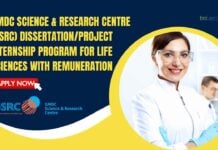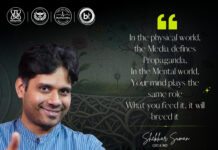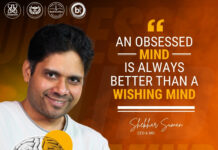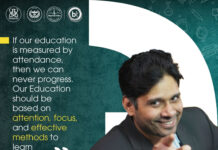Ageing Is Not Fate, It’s a Question that Science Can Answer
At the India Today Conclave 2025, one of the most interesting sessions had a question that has fascinated the human population for centuries. The Question is “Can ageing itself be re-engineered?”. This discussion was led by a famous biomedical scientist, entrepreneur, and co-founder of Founders Health and the London Longevity Club, Dr Avi Roy.
“Immortality, I don’t think any relevant scientist is thinking of,” Dr Roy said with a smile. “But what we are thinking of is negligible senescence, or what you might call functional immortality.”
In simple terms, he explained, it is not about becoming vampires or living forever like the ones in science fiction. Instead, longevity science looks at how we can extend healthy human life by studying creatures like the bowhead whale, which can live for up to 300 years and rarely develops age-related diseases like cancer. “It’s about whether you want to live like a bowhead whale instead of a field mouse,” Roy said. While a mouse rarely survives beyond six months, whales can live across centuries.
Ageing as an Engineering Challenge
For Dr Roy, ageing is not fate, it’s an engineering problem. Humanity has faced similar challenges before. “For 99% of our existence, 40% of children died before their fifth birthday. This was solved using engineering, vaccines were essentially software upgrades for the immune system,” he said.
Now, the focus has shifted from saving children to keeping adults healthier for longer. Scientists have identified 13 hallmarks of ageing, from telomere shortening to the build-up of cellular waste. If these processes can be reversed or slowed, people might not only reach their 30s again biologically but stay in the same state for decades, or even centuries.
So far, the breakthroughs are mostly limited to experiments on worms, mice, and dogs. But according to Dr Roy, the roadmap is clear: ageing may one day be slowed, paused, or even reversed.
India’s Contradictions and Opportunities
Roy also pointed to India’s unique position in the global longevity conversation. “This is a country where sadhus and rishis have lived into their 90s without modern medicine, and yet it’s also a country where 30-year-olds die of sudden cardiac arrest,” he said. “That complexity is why India has so much to contribute.”
India’s massive digital health mission and its Aadhaar-linked data could make it the world’s largest healthcare dataset, allowing researchers to run AI-driven personalised medicine trials at an unprecedented scale.
Telomeres and Gene Therapy Spoken Beyond the Hype
Buzzwords like telomeres and gene therapy often get in a spotlight in headlines. Roy cautioned against overhyping. “Telomeres are like the caps on shoelaces, they fray as cells divide”;. But they’re just one of 13 hallmarks of ageing. We don’t yet have proven fixes for them in humans.”
His Personal Longevity Routine
When asked about his personal routine, Roy said he practices what he preaches. He takes GLP-1 drugs, not for weight loss but for their longevity benefits. He also focuses on three fundamentals:
- Maintaining aerobic fitness (VO2 max)
- Building muscle and grip strength
- Tracking biomarkers with the same seriousness as finances
“Think of your health portfolio like your financial one,” he concluded. “If you don’t want the same heart attack your father had at 55, you need to track the markers that matter and keep them in range.”
The message said by Dr Roy is clear: Ageing Is Not Fate, it’s a problem Science can solve.
Science may not promise us immortality, but it might just hand us the blueprint for staying young far longer than we ever imagined























